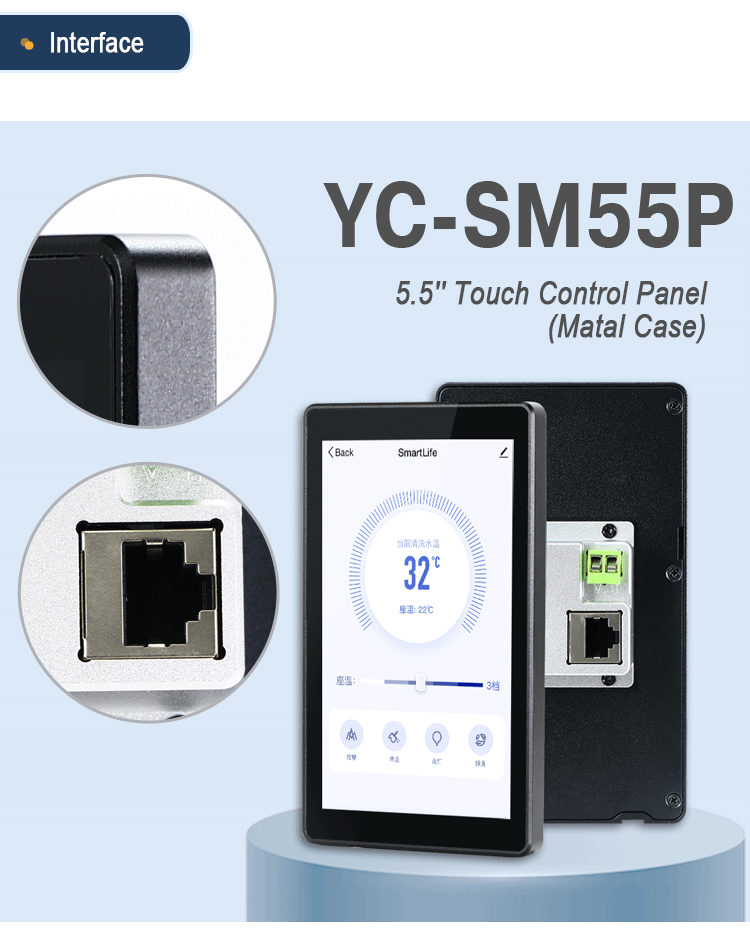The Future of Smart Home Control Panels
The Core of Home AutomationAs technology continues to advance, smart homes have become an essential part of modern living. In this evolution, the emergence of the smart home control panel undoubtedly plays a critical role in driving this trend. It not only allows users to manage home devices effortlessly but also opens up new possibilities for home security, comfort, and energy efficiency. This article will explore the functions, applications, and future development trends of smart home control panels.
1.Functions of Smart Home Control Panels
The core function of a smart home control panel is to manage various smart devices in the home from a centralized interface. These devices can include smart bulbs, thermostats, security cameras, sound systems, and curtains. Through a single user interface, family members can easily perform the following functions:
1.Device Control: Users can turn on or off home devices, adjust lighting, and regulate temperature through the control panel.
2.Scene Setting: Smart home control panels allow users to create various “scenes,” such as “Away Mode,” “Home Mode,” or “Movie Mode,” integrating multiple devices to achieve a specific ambiance.
3.Security Monitoring: By connecting security cameras and sensors, users can view live home situations, receive alerts and notifications, ensuring home safety.
4.Energy Management: Some control panels can monitor household energy consumption, provide energy-saving suggestions, and help families reduce utility bills.
5.Smart Assistant Integration: Modern smart home control panels are typically integrated with smart assistants (like Amazon Alexa, Google Assistant), allowing users to control devices via voice commands.
2. Applications of Smart Home Control Panels
The applications of smart home control panels are vast, covering various living scenarios. Firstly, in a home environment, control panels enable family members to enjoy greater convenience in their daily lives. For example, in the morning, with just a tap on the control panel, the curtains can open automatically, the lights can brighten gradually, and the air conditioning can adjust to a comfortable temperature, making it easy to start a new day.
Secondly, in office spaces, smart home control panels also play a significant role. Many businesses utilize this technology to manage the lighting, temperature, and sound systems of meeting rooms through a control panel, providing a comfortable working environment for employees.
Moreover, smart home control panels are being applied in the hotel industry. Guests can customize the atmosphere of their room through the control panel, adjusting the lighting and temperature according to personal preferences or sending special requests to the front desk, enhancing customer experience.

3. Development Trends of Smart Home Control Panels
As technology evolves, smart home control panels are continuously advancing. Here are some upcoming trends:
1.Integration of Artificial Intelligence: Future control panels will gradually incorporate more artificial intelligence features, learning users’ habits and preferences to automatically adjust device settings, increasing the intelligence level of devices.
2.Seamless Connectivity: The connectivity capabilities of control panels will further enhance, supporting interoperability among various brands and devices, enabling users to manage products from different manufacturers on a single platform.
3.User Experience Optimization: With an increasing demand for enhanced user experience, future control panels will focus more on user-friendliness and ease of operation. The application of augmented reality (AR) technology will enable users to interact with devices more intuitively.
4.Enhanced Security: The security of smart homes has become increasingly important. Smart home control panels will make greater efforts in data encryption and user privacy protection to safeguard user data.
5.Sustainability: As awareness of environmental protection grows, future control panels will pay more attention to the energy efficiency and sustainability of devices, promoting the adoption of green smart home solutions.
ConclusionIn summary
The smart home control panel is an integral component of home automation, with its functions and applications continuously expanding. It not only brings convenience to our daily lives but also plays a significant role in home security and energy management. With technological advancements, future smart home control panels are expected to become increasingly intelligent and efficient, creating a more comfortable and secure living environment for every household. Whether in homes, offices, or hotels, smart home control panels will undoubtedly become an indispensable assistant in our lives.


